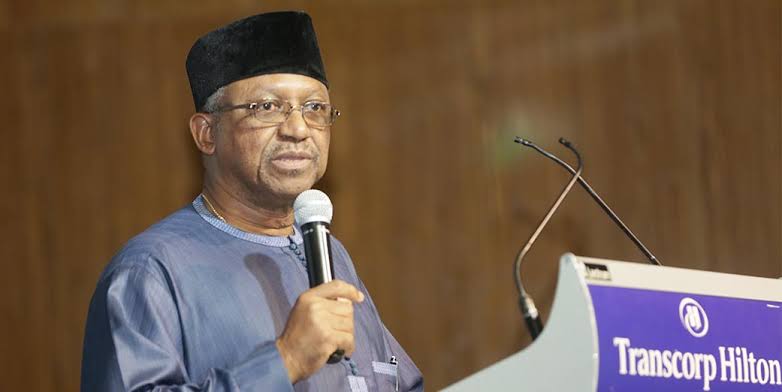Women, adolescents face loss of health services, jobs, information and technology during COVID-19

The experiences of over 30,000 people, mainly women, and young people were solicited in 43 Asian, African, Latin American, and Caribbean countries through surveys, interviews, webinars, and social media:
- Half of the young people (544/1,088) surveyed in Latin America and the Caribbean feared technology problems during homeschooling would affect prospects
- A phone-based survey in Bihar (India) showed that 91% (1,042/1,150) of respondents said that COVID-19 and lockdown had an adverse impact on their income.
- 60% (765/1,275) of pregnant women and new mothers in five Kenyan counties (Bungoma, Kiambu, Makueni, Murang’a, and Nairobi) reported that COVID-19 had impacted their decision to seek care, either in terms of the location or frequency of care-seeking.
Poor mental health, disruptions to education, loss of income and violence, are some of the worrying consequences of COVID-19, according to new findings in a recent study, Finding Hope: Lived experiences of women, children, and adolescents, in their own words.
The experiences of over 30,000 people, mainly women, and young people were documented in 2020 by organizations in Sub-Saharan Africa, Latin America, and South Asia. They found that women and young people are carrying a heavy burden during the pandemic, exacerbating existing forms of bias and discrimination.
Stress and anxiety are rooted in disruptions to daily activities, education, and work, as well as restrictions on mobility and social interaction
“Too often, policy decisions are taken in the absence of hearing directly from community members about what they need and want,” said Helga Fogstad, Executive Director of The Partnership for Maternal, Newborn and Child Health (PMNCH), the world’s largest alliance on women’s, children’s and adolescents’ health issues, with more than 1,000 member-organizations.
The experiences and voices in the “Finding Hope” project shine a light on what really matters to women and young people,” she added. “This information is vital not only for steering COVID-19 policy and programming now but also for encouraging greater investments in community-based accountability systems to support post-pandemic recovery and resilience.”

Minister of Women Affairs, Pauline Talen
Leading civil society groups, including Amref Health Africa; the Centre for Catalyzing Change (C3); the Graça Machel Trust; International Planned Parenthood Federation Western Hemisphere Region (IPPFWHR); and Profamilia (Colombia) used surveys, interviews, social media, and webinars to gain insights into the experiences of women and young people in India, and countries in sub-Saharan Africa, Latin America, and the Caribbean. This information was used to inform their respective programme responses to COVID-19.
“This study is proof of what we have consistently been saying: Women and children continue to bear the biggest brunt of the pandemic on all fronts, whether it’s their economic or social well-being,” says Dr. Githinji Gitahi, Global CEO, Amref Health Africa. Women are overrepresented in many of the industries hardest hit by COVID-19, such as agriculture, food service, retail, and entertainment, including representing over 70% of the health workforce, which is at high risk in the pandemic. Women, children, and the youth continue to be prioritized in our various programs across Africa to ensure that COVID-19 recovery efforts reach these critical demographics.”
COVID-19 hit first and hardest among the poorest, most vulnerable, and marginalized communities
The partners came together with the PMNCH, the world’s largest alliance for the health and well-being of women, children, and adolescents, in an online project entitled Finding Hope: Lived experiences of women, children, and adolescents, in their own words.
“For C3, it was important to be part of this project,” said Aparajita Gogoi from the Centre for Catalyzing Change. “We believe that it is imperative that we un-package the complex implications of COVID-19 on women and girls. We need to listen to these narratives and help amplify the lived realities so that when we strategize to re-build, we put women and girls in the center.”
Key findings
Finding Hope shows that across different contexts and regions, the reported experiences of women and adolescents are strikingly similar. Stress and anxiety are rooted in disruptions to daily activities, education, and work, as well as restrictions on mobility and social interaction.
Concerns include:
- impact on mental health and wellbeing due to disruption of life
- limits on access to formal and informal education
- food insecurity
- loss of livelihoods
- lack of access to health information and services
- limitations to sexual and reproductive health and rights
- increased violence; and
- lack of safety and reduced agency
Finding Hope also highlights different strategies and approaches being implemented in different countries to address the significant challenges facing women and young people.
Governments, civil society, humanitarian organizations, NGOs, and community-based organizations must consider in their response and recovery plans addressing gender inequality and the safety of women and adolescent girls
Across the world, COVID-19 hit first and hardest among the poorest, most vulnerable, and marginalized communities in every survey region, revealing grave inequalities within societies and exacerbating existing challenges facing women and adolescents. This is especially true for those who live in rural and marginalized communities or work in the informal sector.

Minister of Health, Dr. Osagie Ehanire
Key findings on the impact of COVID-19
Finding Hope illustrates the heavy burden women and young people have carried during this crisis, with many common concerns echoed across different countries in different regions, from Africa to Asia to Latin America and the Caribbean. This suggests experiences of stress and anxiety are rooted in disruptions to daily activities, education and work, restrictions to mobility during lockdowns, and the need for physical distancing. Concerns raised by women and teens included:
- Limited access to health information and services: A review of program data from five counties in Kenya (Kiambu, Makueni, Muranga, Bungoma, Nairobi) revealed a reduction in service utilization by approximately 30%. Inadequate knowledge about, and awareness of, COVID-19 is an ongoing challenge. In Latin America and the Caribbean, only 33% (2,908/8,811) of young people aged between 13 and 29 years knew how the virus was transmitted. In India, for example, frontline workers reported that all immunization services were suspended in early April 2020, except for certain vaccinations for babies delivered in health facilities. “I am worried because I’m not sure if I will find the facility open or if I will find nurses during delivery”, pregnant woman Bungoma county, Kenya.
- Violence: Extensive evidence has emerged about the rise of domestic violence during the pandemic; a UNFPA analysis from April 2020 estimated that a six-month lockdown could result in an additional 31 million cases of gender-based violence. Women and girls surveyed in nine states of India reported increased verbal, physical and sexual abuse in general during the pandemic, punctuated by even higher spikes when liquor shops re-opened. “When shops selling alcohol were closed, why did the government re-open them? Because when they sit jobless… they get drunk and create a ruckus. It has a lot of effects”, adolescent girl, India.
Commenting on the findings, Marta Royo, Executive Director of Profamilia, said: “This work showed that, in different contexts and regions, the experiences of adolescent girls and young women during the pandemic are similar. To address them, governments, civil society, humanitarian organizations, NGOs, and community-based organizations must consider in their response and recovery plans addressing gender inequality and the safety of women and adolescent girls, including child health, maternal and sexual and reproductive health services among essential services, and strengthening and reducing gaps in access to the internet and information technologies.”
Mitigating the impact of COVID-19
Collaborating organizations also identified a range of strategies and approaches being implemented in different countries to address the significant challenges facing women and young people. Some of the common strategies included:
- Government-led economic measures to stabilize household income, despite the widespread loss of livelihoods;
- Inclusion of sexual, reproductive, maternal, newborn, child, and adolescent health and nutrition (SRMNCAH+N) services in government essential service lists;
- Using digital tools and traditional media to reach diverse population groups with health messages and psychological support;
- Collective planning and implementation by civil society, humanitarian and non-governmental organizations, as well as self-help groups, frontline and community workers, to ensure the sustained provision of essential services to affected families and marginalized groups during lockdown;
The Insight Report
Nigeria Coverage



